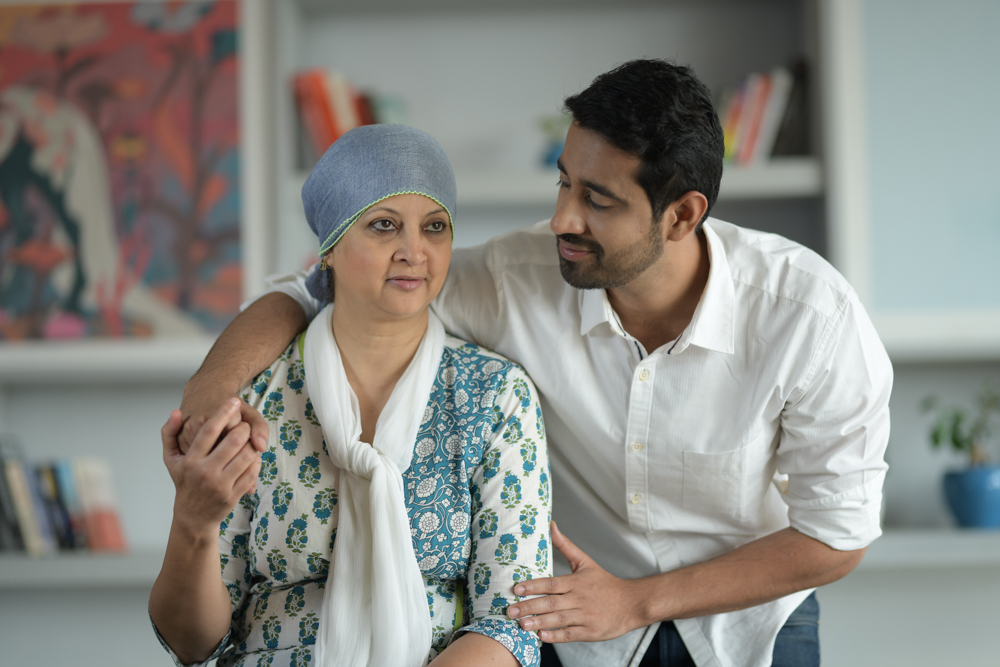Chemotherapy can bring both short term and long term side-effects. They depend on the combination of drugs that have been used during the treatment of the patient. Different people react differently to the same drugs. So it is difficult to predict exactly which side-effects you will face, but the most common ones include hair loss, fatigue, nausea and vomiting.
 Chemotherapy is used to kill cancerous cells. However, it also affects some healthy cells in the process. Side-effects are caused by the damage to the healthy cells within your body. Once these healthy cells recover, the side-effects will cease.
Chemotherapy is used to kill cancerous cells. However, it also affects some healthy cells in the process. Side-effects are caused by the damage to the healthy cells within your body. Once these healthy cells recover, the side-effects will cease.
Here are a few ways to cope with the common side-effects of chemotherapy:
Hair Loss
Hair loss is one of the most common symptoms of chemotherapy. While your hair will grow back once the treatment is completed, there are a few things you can do to reduce the damage to your hair.
- Avoid using hair products with harsh chemicals. These include hair dyes and strong shampoos
- Use a hair brush with soft bristles
- Keep your scalp moisturised
- If you prefer, you can wear a wig till your hair grows back. Alternatively, you can use head scarves – which is both a protection to your scalp, and also a fashion statement!
Nausea and vomiting
Chemotherapy may cause you to throw up or feel the urge to vomit. Here are some ways to reduce this feeling.
- Break your meals down into smaller portions, and eat more number of times in a day
- Certain drinks like tea and apple juice help reduce nausea
- Avoid fried foods and foods high in sugar
- Avoid foods with strong smells as these cause increased nausea in some patients
- Your doctor may prescribe certain anti-nausea drugs to help you
Loss of appetite
Some side effects of chemotherapy may affect your taste buds, causing certain foods to taste different. This may cause an aversion to these foods, and may result in a loss of appetite.
- Try different foods to find some that you still enjoy eating
- If you find a metallic taste in food, try using plastic utensils
- Have enough liquids and stay hydrated throughout the day. This can help your body to get rid of toxins
- Trying a variety of flavours and marinades may help you eat better
Fatigue
A feeling of constant tiredness is one of the common after effects of chemotherapy. Here are a few ways to help you cope with it:
- Take regular, short naps during the day
- Look at reducing your daily chores to conserve your energy
- Short walks may help energise you
- You doctor may provide you with medication to recover from anemia (deficiency of red blood cells), if required
Mental fog
It is common to have a cloudy mind during and after your chemotherapy. Patients experience difficulty with managing multiple tasks, remembering daily appointments, names etc. This is a temporary condition and you can cope with it in these ways:
- Keep a diary to help you remember appointments, contact numbers etc
- Play an instrument, solve a puzzle or learn a new hobby
- Adequate sleep is very important for the optimum functioning of the brain
Getting the right care after cancer treatment is very important. Ask your doctor on the long-term side-effects of chemotherapy and late side-effects to watch out for. You will also be asked to follow routine check-ups which will include physical examinations and lab tests.


